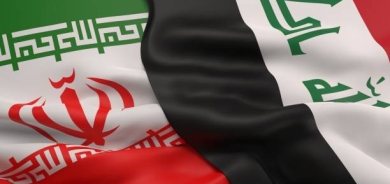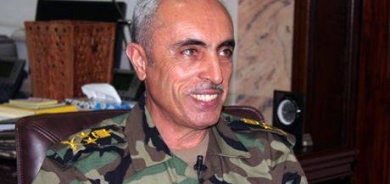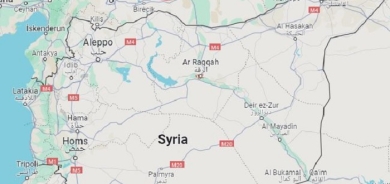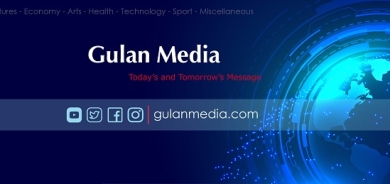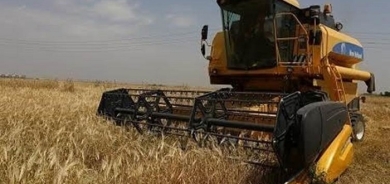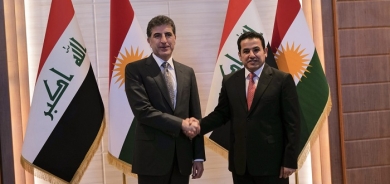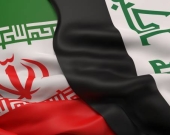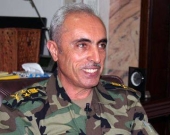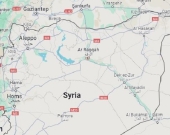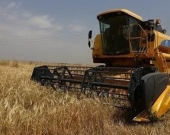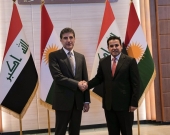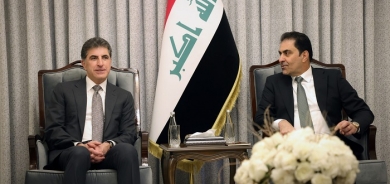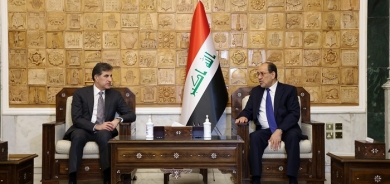Ballooning in Kurdistan: More than Just a Flight of Fancy
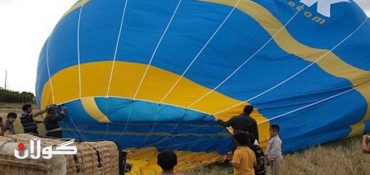
The former science teacher, who ran his own ballooning company for 30 years in the Netherlands and still works as a balloon pilot and instructor, was asked last year by Sirwan Barzani, CEO of telecom company Korek, to explore the possibilities of bringing ballooning to Kurdistan.
A professional hot air balloon adorned with the Korek name and colors was bought in Europe, and Bosman came to Kurdistan to form a team and start test flights. This spring, thousands of people saw the first Kurdish hot air balloon float overhead.
When the Korek balloon flies overhead, villagers and groups of children below are so delighted that they follow it on the ground for some time. “For many, this is the first time in their lives to see such a thing”, said Bosman, 65.
He added that the balloon flights were a leisurely pastime, with no more than about 20 kilometers of ground covered in a single flight. As the balloon is flown by the wind, the pilot has little control over where it ends up, he explaied. But of the fifteen flights he conducted, only one ended in a grain field, he recounted with a broad smile.
Bosman tried out many different locations, from the town of Duhok, to the Korek mountain and the lake of Dukan. He flew over picnicking families, towns and villages and animals grazing. “Ballooning should be beautiful and attractive to the passengers, and Kurdistan has beautiful landscapes,” he explained.
He found that the air traffic law in Kurdistan is no different from Europe, and arrangements were made with area airports where the balloon could fly safely. For every flight the local Asayesh security police was informed. “Often they came to greet us at the landing, offering their support. In Dukan even the army came to greet us,” Bosman recalled.
The pilot is touched by the “hospitality and openness of the Kurdish people”. Everywhere he started or landed, he got help from the locals, while filling the balloon for flight or packing it away afterwards.
Only once they almost ran into problems, when passing over a group of Bedouins. Bosman smiles broadly when recounting the incident. “They said that it was a good thing we waved at them, as they were considering shooting us from the sky. They could use the balloon to make kites.”
Safety is a priority for the the Dutchman. But this is more about preventing accidents, because of turbulence and other weather problems, than anything else, he explained.
Balloon flights can only be conducted safely up to about an hour after sunrise and again an hour before sunset, Bosman said. At those times wind conditions are best and the heat is not too great. “With higher temperatures you can take less weight up, so less passengers.”
He thinks the best time for ballooning in Iraqi Kurdistan is from mid-September to mid-May, as the summer is far too hot and December to February can be too rainy.
Bosman wants to stick securely to European safety rules, to prevent accidents such as the recent ones in Turkey and Egypt.
Ballooning is feasible in Kurdistan, Bosman concludes. But to make it financially possible, it will need sponsors to buy the balloons. He expects locals and tourists alike would be interested in experiencing ballooning, and adds there are also commercial possibilities for advertising.
“Everybody loves balloons and takes pictures, which then end up on Facebook and the Internet. That can give the sponsors of the balloon a lot of exposure,” he said.
While Bosman is returning to Holland, his Kurdish partners will review the business plan he drew up. If they decide to go ahead, they can count on him as an instructor and pilot, he said with a happy smile.
“Something clicked, something happened between me and Kurdistan. I will be happy to come here for a number of months a year for the next five years,” he said.
Rudaw

